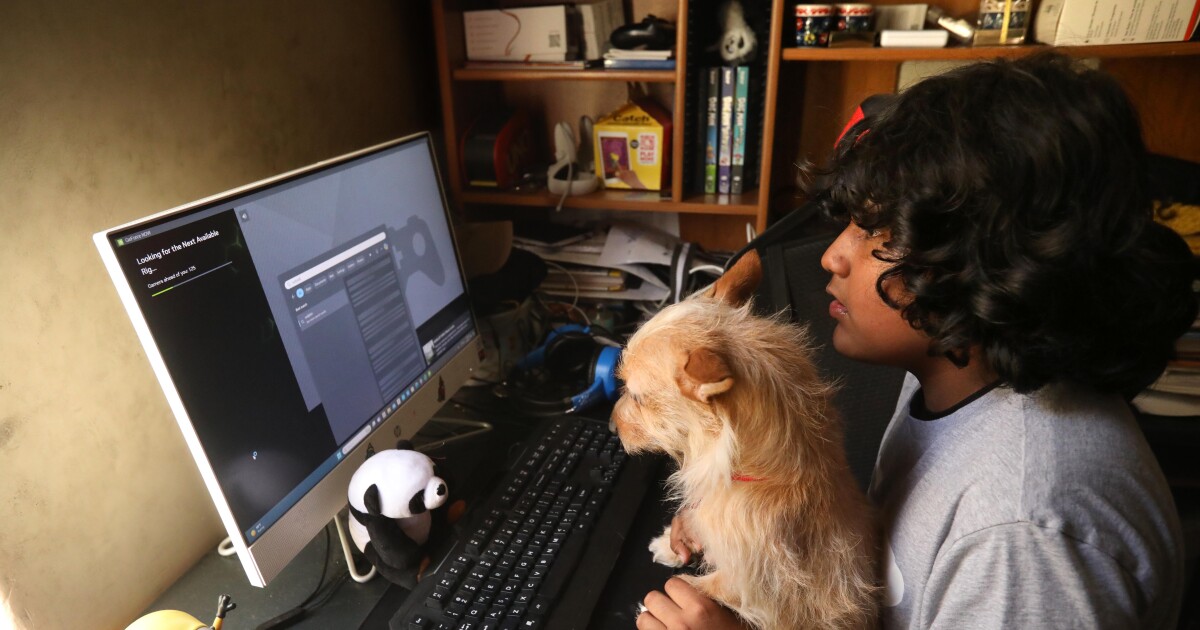Keep up with LAist.
If you’re enjoying this article, you’ll love our daily newsletter, The LA Report. Each weekday, catch up on the 5 most pressing stories to start your morning in 3 minutes or less.
A state Assembly bill that would have mandated low-cost internet service has been shelved, temporarily scrapping the latest push to bring affordable, reliable internet options to the millions of Californians without access.
Assemblymember Tasha Boerner, who represents part of San Diego county, said in a statement that she shelved AB 353 last week because of President Donald Trump’s changes to the Broadband, Equity, Access and Deployment program.
“Although I am pausing my bill for now, I am committed to working with my colleague Sen. [María Elena] Durazo on her effort to expand the state’s existing Lifeline telecommunications program to allow support for home internet access,” Boerner said.
What would AB 353 do?
The bill, which mirrors a similar New York law that went into effect this year, would have required internet companies to offer subscription plans at $15 a month for qualifying low-income households.
If passed, it would have paved the way for more low-income households to access the internet at faster speeds than other affordable plans currently offered at $30 a month.
Advocates estimate that about 3.5 million Californians lack access to the internet, with the biggest barrier being affordability.
In Los Angeles County, officials estimate 311,000 households have access to the internet only through their cellphones, and 416,000 households have no access to the internet at all.
How did we get here?
The bill’s withdrawal comes after Trump changed requirements under the Digital Equity Act, which supported affordable internet legislation. It stripped certain protections such as low-cost service options and DEI-driven requirements.
Boerner said the change introduced legal uncertainty and put at “serious risk” $1.86 billion in federal broadband infrastructure funding.
“President Trump’s new rules only serve to benefit corporate internet service providers taking public subsidies at the expense of low-income Americans,” Boerner said.
Where does this leave California’s affordable internet?
Shelving AB 353 leaves only one other state bill on the table to bring affordable internet to millions of Californians.
SB 716 would make broadband internet access a lifeline service, meaning providers that voluntarily offer at least one high-speed monthly plan at $30 can qualify for a subsidy.
The bill was referred to the state’s Committee on Appropriations. You can find the latest developments here.
How are advocates reacting?
Natalie Gonzalez, director of Digital Equity LA, said she is disappointed that Boerner blamed the Trump administration for pulling the bill.
“The federal government isn’t going to save Californians when it comes to affordable and reliable internet,” Gonzalez said.
She said there isn’t a pathway for federal funding to aid the affordability crisis in California, especially after the Affordable Connectivity Program ended last year.
Instead, she hopes the state will step up.
“We know that California has always really led the way on broadband equity with [Gov. Gavin] Newsom really recognizing that reliable internet is a civil rights issue, and hoping that we will continue this fight in the next legislative cycle,” Gonzalez said.

